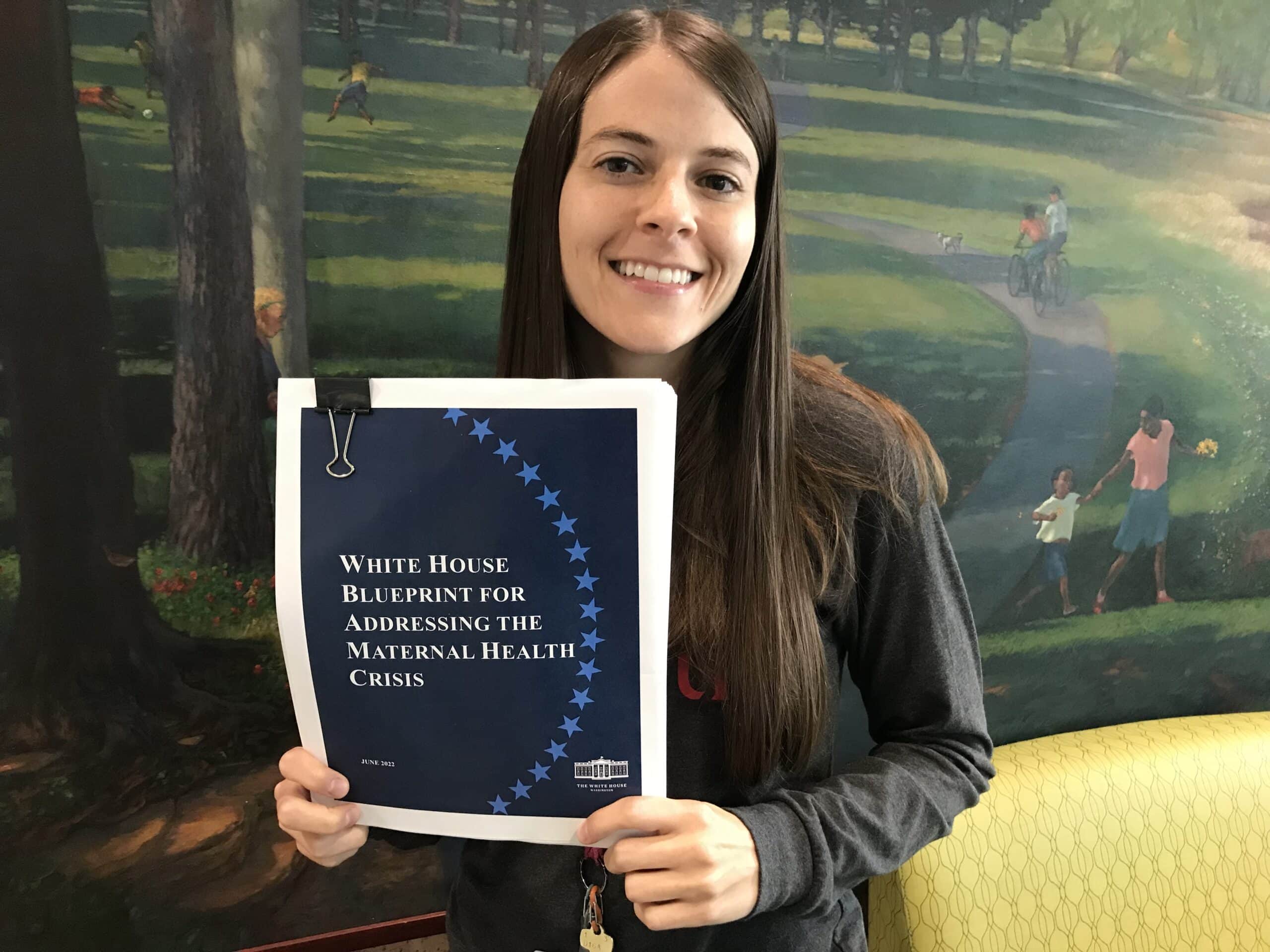White House Report on Maternal Mortality References Data from Study by Clare Brown, Ph.D.
| Clare Brown, Ph.D. MPH, of the University of Arkansas for Medical Sciences’ Fay W. Boozman College of Public Health, received a pleasant surprise upon learning that data from a project she authored was used in the June 2022 White House Blueprint for Addressing the Maternal Health Crisis report.
Last fall, Brown, an associate professor in the Department of Health Policy and Management, completed a study on how mental health conditions increase adverse maternal outcomes, including severe maternal morbidity, high hospital costs and long lengths of stay. Her research, which was supported by her colleagues at the Institute for Medicaid Innovation out of Washington, DC, was published by numerous publications.
Nevertheless, seeing her study in a White House report still caught Brown by surprise.
“I didn’t know anything about it until I read it a few days after the report was published,” she said. “A colleague brought it to my attention. It is neat seeing my work published by the White House. I love knowing that our projects factor into policy decisions, particularly those that address health equity.”
Brown appreciates the magnitude of having her work referenced by the White House. However, she’s most grateful for the chance to promote mental health awareness.
“My work being read by staff in the White House and being written about by White House staff is outstanding,” she said. “But I’m also pleased with how the report emphasized the need to address mental health issues for women. Not only do clinical conditions such as diabetes and hypertension effect a pregnancy, but also mental health conditions, such as anxiety, depression, PTSD and trauma. Psychological trauma is one of the main ways to predict a woman’s severe maternal morbidity.
“Arkansas has some of the highest rates of maternal mortality in the nation. One of the biggest factors is adverse clinical outcomes prior to pregnancy. We’re learning that mental health difficulties contribute to the issue.”
Increasing mental health awareness is a much-needed evolution, especially for women who are pregnant or just had a baby, Brown added.
“People don’t have to feel like they’re alone and that nobody understands what they’re dealing with,” she said. “When a woman has a baby, she’s taking care of the baby and often not as focused on taking care of herself. If family members see a mom who’s not doing well, nowadays they’re becoming more comfortable with getting her the help that she needs.”
According to the White House report, women who live in rural communities or rural states like Arkansas often have limited options regarding maternal care. That outcome is due mostly to systemic imbalances that are a roadblock to health care opportunities.
Being part of a White House report, which referenced a plan that can help Arkansas’ families — especially women — embodies why Brown is dedicated to doing research.
“As researchers, that’s the goal for our careers, to come up with answers and suggestions that improve population health,” she said. “It’s super exciting to see my work implemented into policies. I hope this trickles down to saving infant lives or maternal lives and to reduce racial disparities in those outcomes.”
